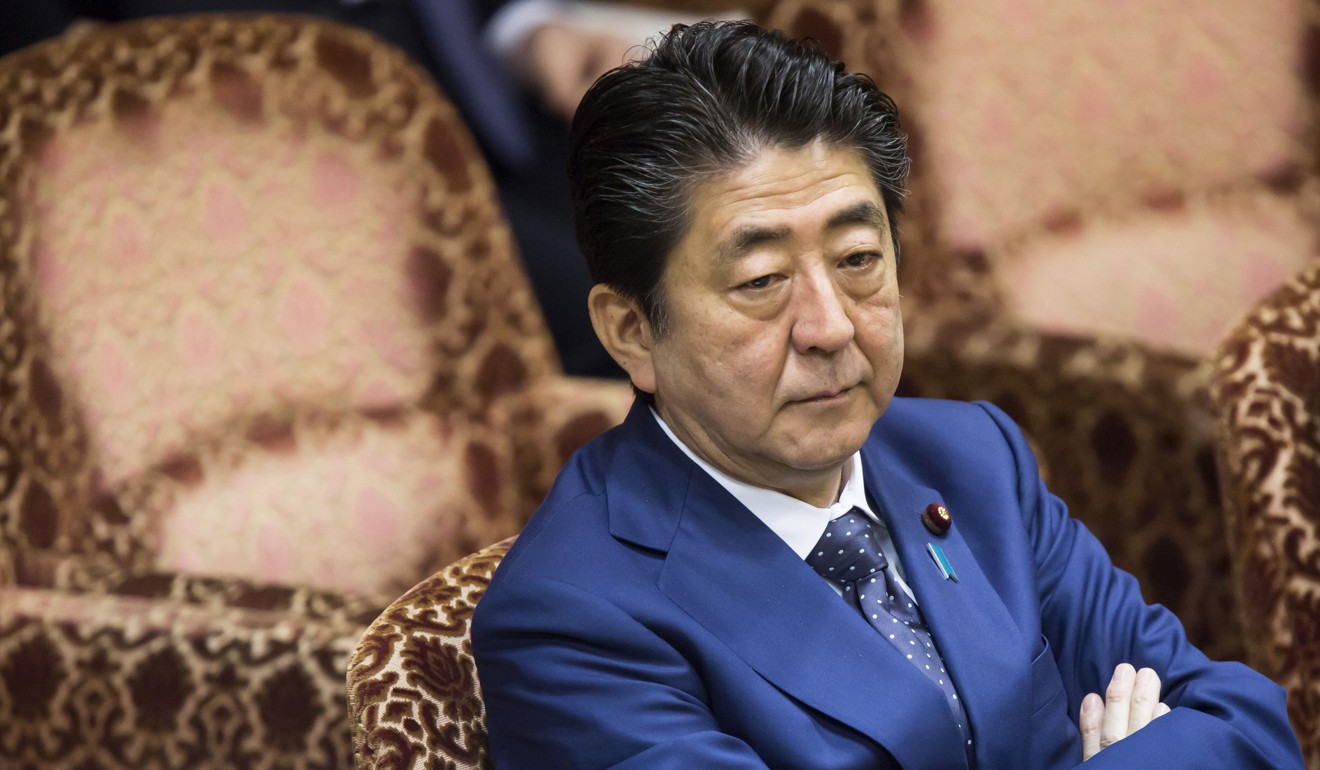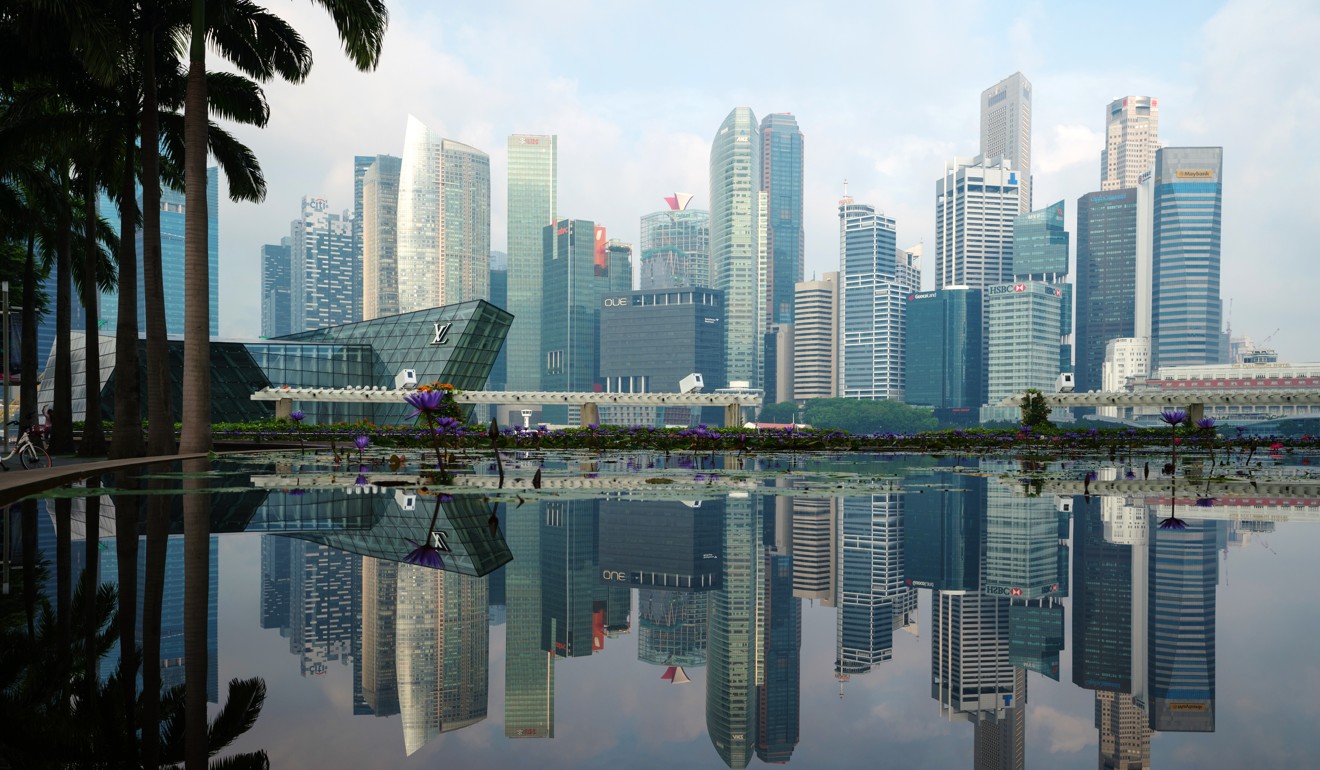
Return of Mahathir Mohamad to Asean may put a third power in the picture – Japan
Tokyo could play bigger role in the region and balance rivalry between Beijing and Washington

When the top diplomats from 10 Southeast Asian countries gather in Singapore later this week for their annual meeting, rivalry between China and the United States will again be in the spotlight.
But this year, the return of Malaysian Prime Minister Mahathir Mohamad to the Association of Southeast Asian Nations has put a third power in the picture – Japan, a nation increasingly seen in the region as a more reliable partner as competition between Beijing and Washington intensifies.
“Japan doesn’t speak about its soft power much, but among all the major powers in the region – such as the US, China and India – Japan consistently has the best image in Malaysia,” said Ngeow Chow Bing, deputy director of the Institute of China Studies at the University of Malaya.
The Malaysian leader, who has long been close to Japan and seen the country as an inspiration for achieving economic success in his own country, chose Tokyo for his first foreign visit after his opposition alliance swept to victory in the May election.
During the trip in June, Mahathir met his Japanese counterpart Shinzo Abe, pledging to strengthen Malaysia’s ties with Japan. He also indicated a determination to reduce the country’s indebtedness to China and made a pitch for more investment from Japan.

While the US is set to unveil funding plans to boost infrastructure, technology and energy development for the region, Japan is positioning itself as a reliable middle power and is expected to take a larger role.
Tokyo has invested about US$230 billion in the region since the 2000s, or about US$75 billion more than Beijing, according to data from BMI Research.
“Japan has a lot of investments in Southeast Asia but they never impose their culture on us. In fact we are very receptive to their investment and their culture,” said an official from an Asean country, speaking on condition of anonymity.
A US official also said that after years of working behind the scenes, Japan could emerge to help balance the bitter rivalry between China and America.
“Bringing Japan into the picture would balance the pool so that countries won’t feel like they have to choose one or the other,” said the US official, who also declined to be named.
Vietnam would also welcome Japan playing a bigger role in the region, according to Huong Le Thu, a senior analyst with the Australian Strategic Policy Institute.
Japan “is very important and is one of the most trusted partners” of Vietnam, she said. “There is a lot of room, and anticipation that there will be more cooperation between maritime Southeast Asia and Japan.”

In the Philippines, where China’s promise for economic development has yet to materialise, Japan has been the biggest supporter of Rodrigo Duterte’s infrastructure programme dubbed “Build, Build, Build”, and enjoys a favourability rating among Filipinos that is on par with that of the US.
“That itself is astonishing given Japan’s history in the Philippines, particularly during the second world war … ‘comfort women’ are still alive in the Philippines,” said Richard Heydarian, a Manila-based geopolitical analyst.
Japan has also been increasingly active with sending navy ships to the Philippines, and was an observer during this year’s Balikatan exercises, an annual military drill between the Philippines and the US, along with Australia.
“Japan has the advantages that China doesn’t have in Southeast Asia,” said Zhang Mingliang, a specialist on Southeast Asian affairs at Jinan University. “They have worked diligently and are deeply involved in the region’s economic landscape. The country’s image is much more positive than China’s.”
But analysts said Japan had been held back by its pacifist constitution and a lack of “strategic confidence” and that it also lacked the ability to act as an independent power.
Jakarta, which recently agreed with Tokyo to boost maritime cooperation around six of Indonesia’s outer islands, also put forward the idea of Japan developing resorts on its resource-rich Natuna archipelago.
But the idea, according to an official who is familiar with the discussions, failed to gain momentum because the Japanese side was unwilling to invest in projects that are not commercially viable – a different approach from Chinese state-owned firms which tend to focus less on revenue and more on political significance.
Ngeow from the University of Malaya gave the example of a regional free-trade zone proposed by Mahathir in the 1990s as another example of Japan’s lack of strategic confidence. Japan refused to back the East Asia Economic Caucus, fearing at the time that teaming up with Malaysia would upset the United States, which was not part of the plan and saw it as a threat to its influence in the region.
“There is a sense within the strategic community in Malaysia that Japan has been less bold, and generally acted in a more cautious and conservative fashion,” Ngeow said. “While enabled by its alliance relationship with the US, [Japan] is at the same time constrained by it.”